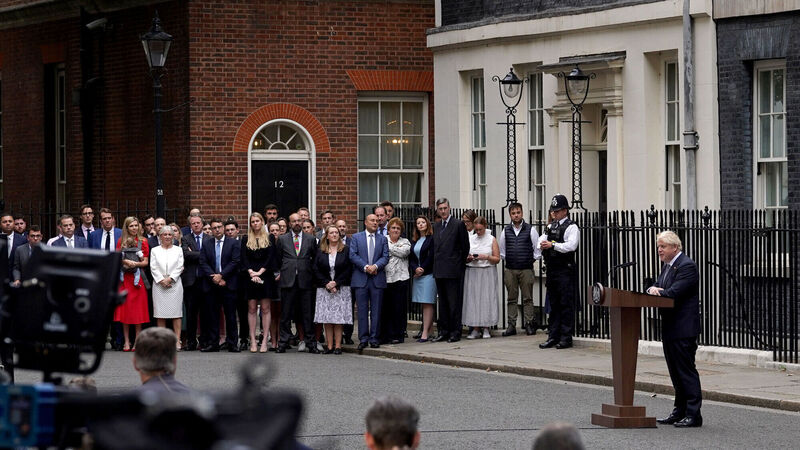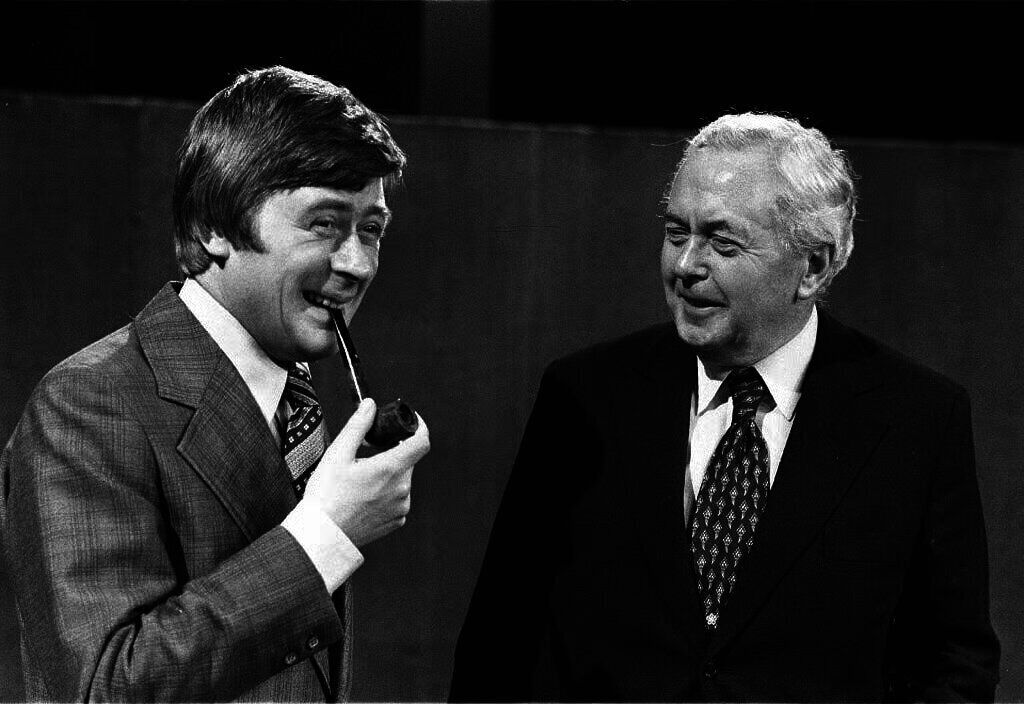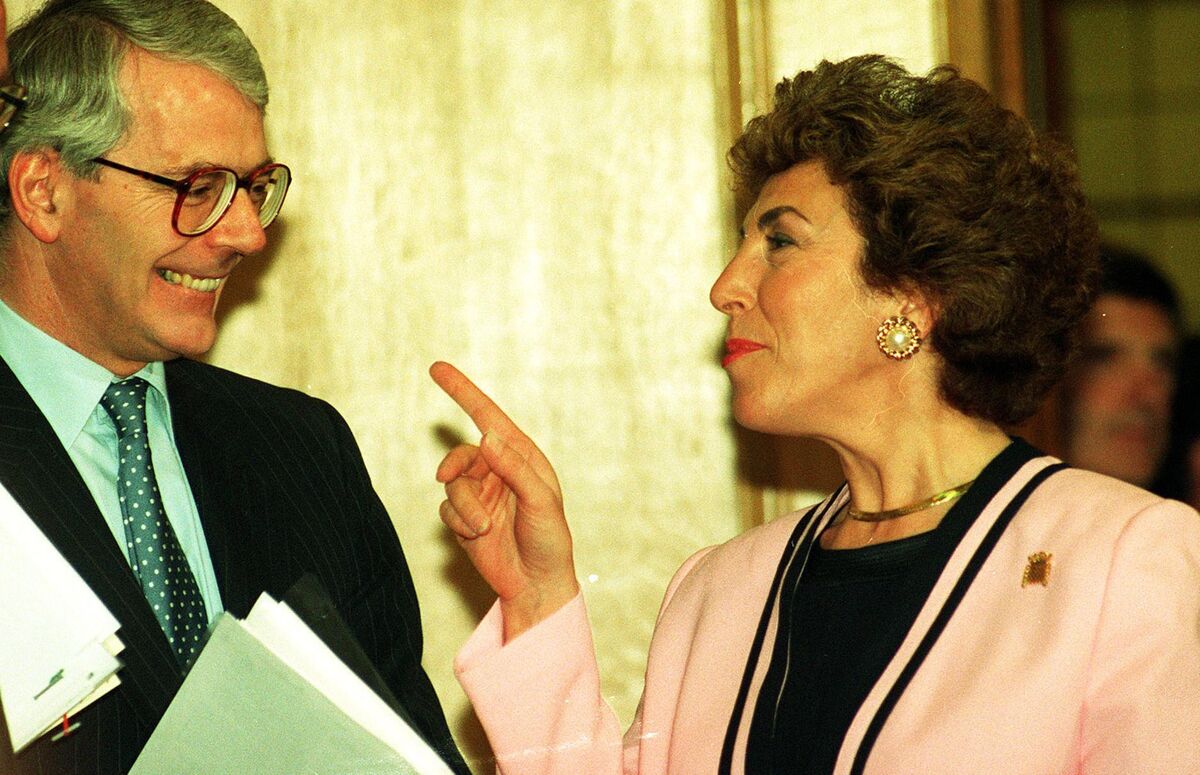Terry Prone: After Clownfall, Boris Johnson will resume his highly profitable media career

It was profoundly satisfying in its disengaged banality and lack of ideological underpinning. Like a cheap necklace breaking, none of the beads connected to each other and none was even worth pursuing under the couch.
The next step, according to common decency, would be his expeditious departure from Downing Street and entry into a dignified silence. Except that common decency, that once-dominant figure in political lives, died a while back.
The theory is that common decency got done in by Donald Trump, Boris Johnson, and social media — although the case can be argued that common decency was never more than a comforting myth. Common decency did, however, in concert with public shaming, frequently persuade wide-boy politicians to resign, especially if reinforced by a formal visit from grandees from the politician’s own party.
Such a visit tended to make the politician see the light. That didn’t work with Boris.
What eventually worked was the crushing continuum of resignations, with its implication that enough replacements couldn’t be found quickly enough to keep the government going.
Those who always hated him are disappointed by his continuing presence in Number 10, but believe that late-onset shame will eventually force him to fade away, to slide out of the public mind. They should realise the double-whammy of ’s brilliant cover of him hanging from a string, captioned “Clownfall”.
Even at the point of destruction, people were paying attention to Johnson — the speed of issuance of that cover was phenomenal — and finding him entertaining. Bit like the way Republicans still find Trump worth a worshipful visit to Mar-a-Lago.
It’s fair to predict with confidence that Boris will not fade away. Rather, he will play out a raucous and phenomenally profitable aftermath. Boris is the right man for the times. All media is now driven by ratings, and Boris gets ratings through irritating people, through amusing people, through scandalising people. Producers who want viewers will have no shame about inviting him to present programmes.
Editors who know he fabricates stuff in his copy will still commission him to write columns at truly epic fees. That may well include — watch this space — editors already caught out by his incapacity to tell truth from fiction. And, because he never had an ideal or over-arching objective, other than getting Brexit done, he will not go into retirement depressed in any way over all he wanted to achieve that is now beyond his compass.
What prime ministers do when they lose power is fascinating. In the immediate aftermath, people simply avoid them, eyes down when they encounter them.

Hangers-on go hang on to someone else. Even the faithful may continue to be faithful while preferring their fidelity were, as far as possible, invisible to others. Some deliberately put themselves out of the spotlight, studiously avoiding any comment about their successor, finding directorships to engage their part-time interest and lending their name — and sometimes their time — to charitable endeavors.
The best example of this is presented by Enda Kenny, who occasionally pops up presenting TV programmes that have nothing to do with politics, cycling for good causes, and lobbying internationally for charity
Enda Kenny’s self-evident enjoyment of his retirement could not be further from the experience of many others, most notably Albert Reynolds, whose joy in life receded as — in the early couple of years after he lost power — he hung about on the edge of any spotlight, desperately eager to comment on anything political. That was before Alzheimer’s turned him into an affable but mystified shadow of what he had been.
Harold Wilson, once seen as the architect of high-tech modern Britain, also eventually suffered from Alzheimer’s, the onset period of which is unclear, but probably began before — as biographer Ben Pimlott wrote — “he allowed himself to be paraded as a popular entertainer”.

“At Christmas 1978, Wilson had appeared on , cracking jokes about the pound in your pocket to twenty million stunned and embarrassed viewers.
“The following autumn the former Prime Minister was persuaded to act as chat-show host on a programme called . He was not judged a success.”
In fact, he was publicly described as a walking caricature.
(One recent book about sleep suggested that Wilson and Maggie Thatcher, another Alzheimer’s sufferer, each claimed publicly to get by on minimal sleep and suggests chronic sleep-deprivation may have contributed to their dementia.)
In contrast, the half-life of power has, in Ireland, been lived out productively by Bertie Ahern, who is a superb current affairs commentator on radio. He has also created an international market for his advice.
John Major, a previous Conservative prime minister, was parodied so often during his time in Downing Street as a grey, dull, tediously respectable man, that the period after his resignation in the summer of 1995 proved to be unexpectedly interesting.

First of all, in 2002, the definitively appalling former minister Edwina Currie revealed she’d had a four-year affair with him when he was in power. She did this as part of the publicity designed to sell copies of her published diaries, describing him to the tabloids (and anyone else who would hold still for it) as the love of her life.
The irony of damaging the love of your life by revealing something discreditable about them that happened a decade earlier seemed to escape her. But then, irony wouldn’t be Currie’s strong point.
Major kept his mouth shut in response to this onslaught, other than to state that he was ashamed of the affair and had confessed it to his wife years previously. I’ve often wondered what it was that Major saw in Currie that the rest of us missed, given that it was important enough to him to make him risk his career and marriage for it.
The second and just as surprising discovery about John Major was when he was revealed as being the offspring of two music hall performers. Difficult to imagine, but Major was vicariously steeped in his parents’ profession, which he describes as “a world full of life, with each performance a kaleidoscope of colour and contradiction: the beautiful and the bizarre, the glamorous and the grotesque; the romantic and the raffish; the comedic and the crude”.
Major went on to research and write a delightful and authoritative history of music hall in Britain. And he has maintained a sufficiently robust profile to ensure that when he wrote to the 1922 Committee suggesting Boris should be replaced immediately by an acting prime minister, it was widely published and, even more, widely agreed with.






